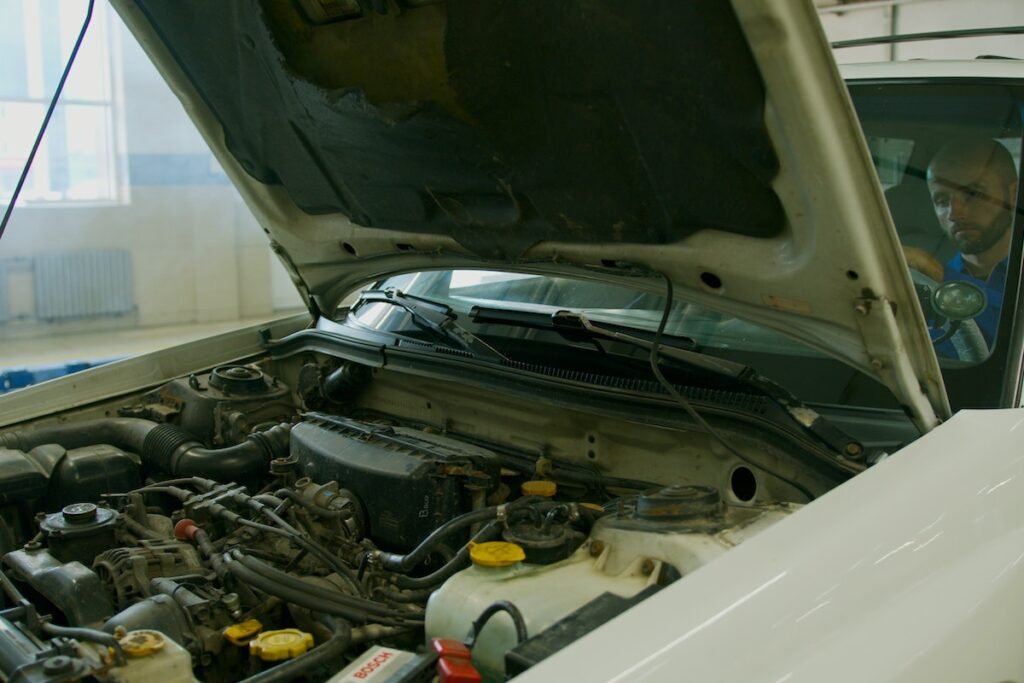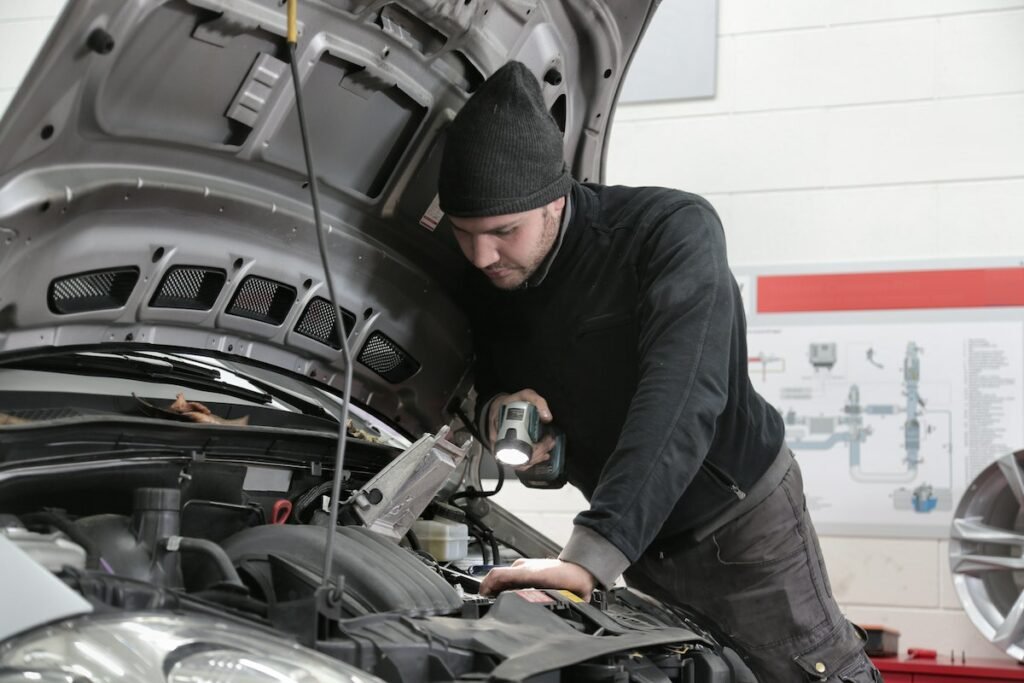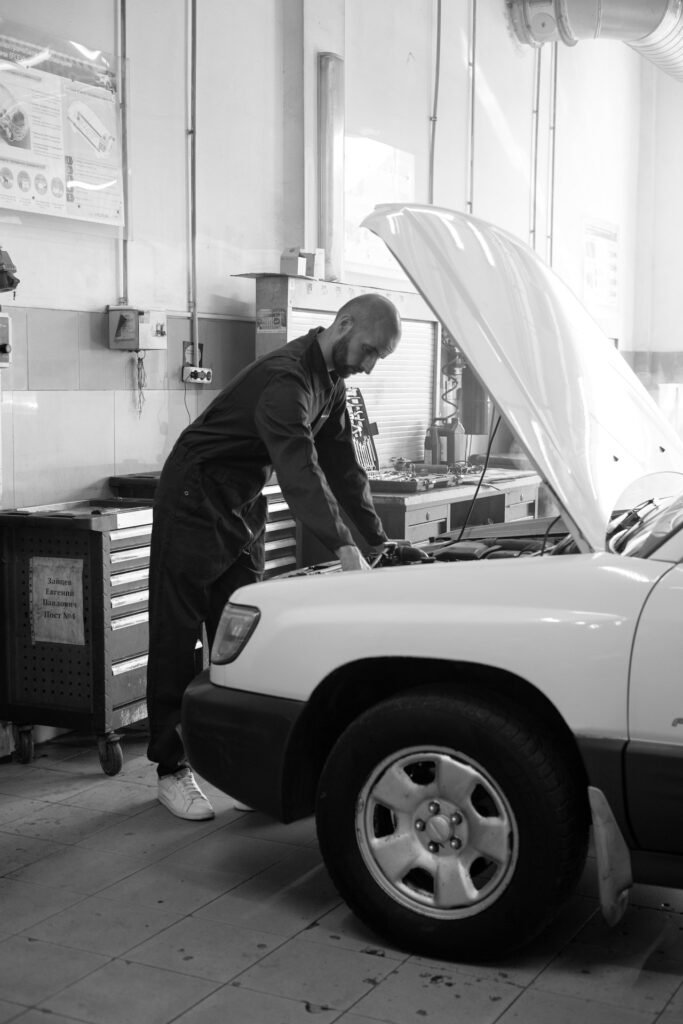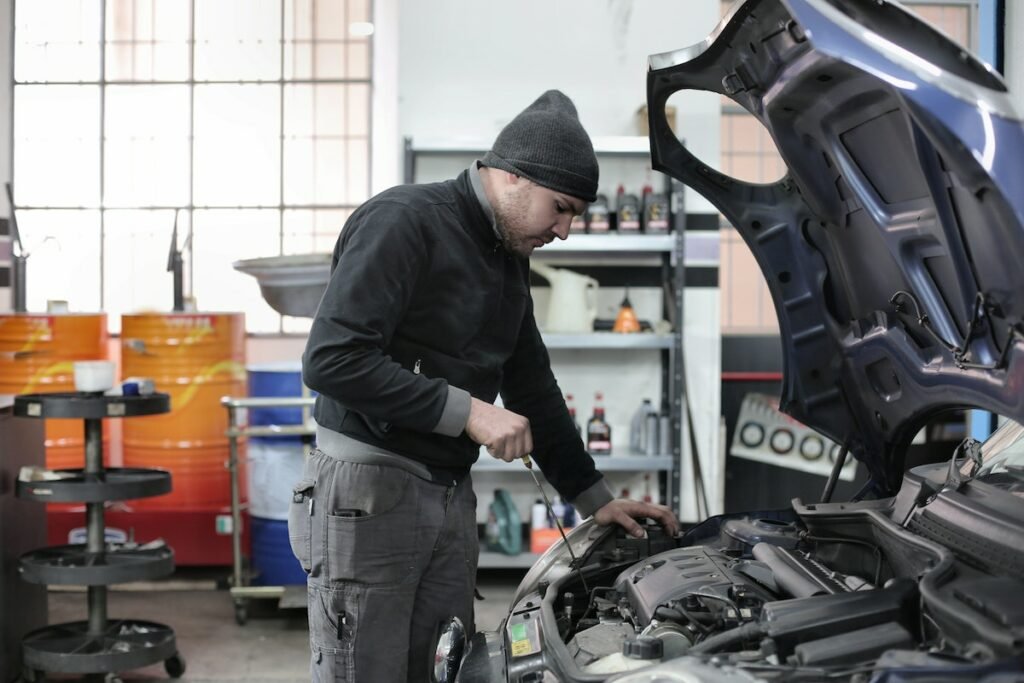The radiator is one of the crucial components in a car as it plays a vital role in regulating the engine’s temperature. It is responsible for dissipating heat away from the engine through a network of fins and tubes, helping maintain the engine’s optimal operating temperature.
If you’re facing issues with your car’s radiator, whether it’s in need of repair or replacement, you’ve come to the right place. Here at Treasure Valley Auto Care, we’ll be discussing common signs of a malfunctioning car radiator in this blog post. Keep reading below to learn more.
How Does a Car Radiator Work?

Radiators serve as heat exchangers in your car’s cooling system. Coolant is pumped through the engine, picking up heat energy as it circulates through various parts and systems.
The radiator itself is constructed from conductive metal and is connected to thin tubes or fins that are exposed to the air, typically at the front of the vehicle. As the air rushes through these tubes and fins, it cools down the metal, which, in turn, dissipates the heat energy from the coolant, ultimately cooling it down.
This now-cold liquid is then recirculated through the engine to repeat the process, ensuring that the engine doesn’t overheat.
However, radiators can sometimes experience problems, most notably blockages. In many cases, these issues can be avoided with regular maintenance. Given the radiator’s critical role in the engine’s temperature regulation, it’s essential to have it inspected on a routine basis.
Coolant flushing is a crucial part of radiator maintenance, with an annual flush being a common recommendation. This process helps remove rust, scale deposits, and other debris that may accumulate and clog the radiator. Depending on your vehicle’s usage frequency, more frequent flushing may be necessary. To determine the ideal schedule for radiator flushing, it’s advisable to consult with a qualified car technician.
Several components are integral to the radiator’s functionality, including the radiator hose, water pump, thermostat, and radiator cap. The failure of any of these components can result in radiator problems. If you require radiator repair or replacement in Garden City, Idaho, you can rely on Treasure Valley Auto Care.
Now, let’s delve into the specific signs that might indicate a problem with your car’s radiator:
High-Temperature Gauge Reading
The temperature gauge in your car provides crucial insights into the coolant temperature. It helps you determine whether the coolant is at an optimal temperature (usually indicated by cold, warm, or hot readings).
If you notice that the gauge reading is higher than normal, it’s an indication that your car’s coolant might be overheating. Several issues can lead to this, including improper coolant circulation, blockages in the system, or debris hindering radiator airflow, all of which can result in coolant overheating. Addressing these problems is essential to prevent potential radiator damage.
The Radiator is Leaking Coolant

A prevalent symptom of a malfunctioning radiator is coolant leakage. If your car is leaking coolant, the first areas to inspect are the radiator hose for signs of leaks or cracks.
Additionally, closely examine the radiator cap, ensuring it’s securely in place and undamaged. Coolant leakage can lead to reduced coolant levels in the radiator, potentially causing the engine to overheat or, in more severe cases, causing engine damage.
It’s crucial to promptly notify your car technician and arrange for the necessary repairs or a replacement.
Radiator Hose Issues
Another sign of a clogged or faulty radiator can be identified by checking the radiator hoses. When these hoses are excessively hot to the touch, it’s an indicator that the coolant is not circulating correctly, potentially causing the engine to overheat.
During this inspection, also be on the lookout for collapsed hoses, bulges, or kinks, as these issues can impede the proper flow of coolant.
Any problems with the radiator hose should be addressed promptly, and replacement is often the recommended course of action. Don’t delay in resolving these hose-related issues to maintain your engine’s health and prevent overheating.
Coolant Color Has Changed
Typically, car coolant is a bright green color. Over time, it can transform into a rusty brown hue, indicating an accumulation of rust in the radiator that has contaminated the coolant.
This alteration in color can significantly disrupt the coolant’s ability to circulate effectively throughout the engine. Therefore, it’s essential to regularly inspect the coolant overflow tank to assess the coolant’s condition. A potential issue related to the transmission cooler within the radiator is the development of sludge within the system.
If the protective barrier separating the transmission fluid and coolant corrodes, it can lead to contamination. This corrosion, in turn, can trigger problems within the car, such as engine failure. Therefore, if you notice a foul odor, thick consistency, or gritty texture in your coolant, it’s a clear sign that it needs to be replaced.
Deteriorated coolant won’t efficiently dissipate heat from the engine, potentially causing overheating and other complications. To address this issue, consult with a car technician for a proper diagnosis and guidance on the necessary repairs.
Radiator Fins are Bent or Broken

The radiator is responsible for efficiently dispersing heat, but if its fins are bent or broken, this critical function is compromised. Radiator fins are thin metal pieces situated on the sides of the radiator, essential for the proper dissipation of heat.
When these fins are bent or broken, they obstruct the flow of air over the radiator, increasing the risk of the car overheating.
Additionally, damaged fins can lead to leaks in the radiator fluid and coolant. Various debris, such as small rocks, insects, dirt, leaves, or soot, can become lodged in the gaps of the fins, causing them to bend or break.
Passenger Seat Has Heater Problems
In the winter months, some individuals may encounter a problem where the engine has been running for an extended period, but not enough heat is being blown out through the rear heating vents.
This issue could be a result of a clogged radiator. If the radiator’s heater core becomes obstructed or develops a leak, there may not be an adequate supply of hot coolant in the radiator core, resulting in insufficient heat generation to raise the temperature in the rear part of the car.
Radiator Hose is Collapsed
High engine revs or driving at high speeds on the road can lead to overheating. A collapsed radiator hose is a common culprit behind this issue. The collapse of the radiator hose can be attributed to a faulty radiator cap creating a vacuum.
Typically, the radiator cap is designed to release negative pressure due to coolant contraction. However, when it fails to function as intended, it can result in the radiator hose collapsing.
Overheating

The radiator, water pump, and thermostat collectively maintain the proper functioning of the cooling system. The failure of any of these components can lead to your car overheating.
A malfunctioning electric fan or fan clutch radiator will result in a high temperature gauge reading, particularly on hot summer days. You might also observe steam rising from under the car’s hood.
If you notice your car’s engine overheating or causing a breakdown, it’s crucial to find a safe spot to pull over, turn on your hazard lights, and stop driving immediately. Continuing to drive under these conditions can cause permanent damage to the engine components.
Is your car’s radiator experiencing issues? If you are located in Garden City, Idaho, you can depend on Treasure Valley Auto Care for radiator repair or replacement. We offer auto repair services for various car brands.
If you have any questions or need more information about our services, please don’t hesitate to contact us. You can reach us by calling 208-385-0339 or sending an email to quality@treasurevalleyautocare.com. Don’t wait; get in touch with us today! We’re here to assist with your car troubles.
